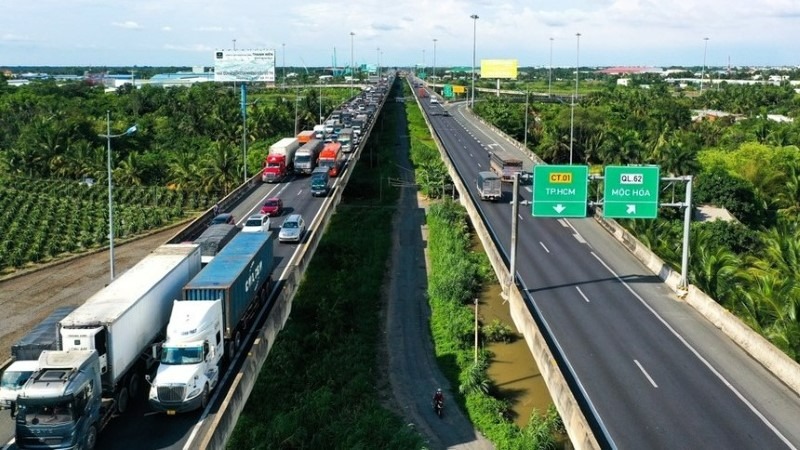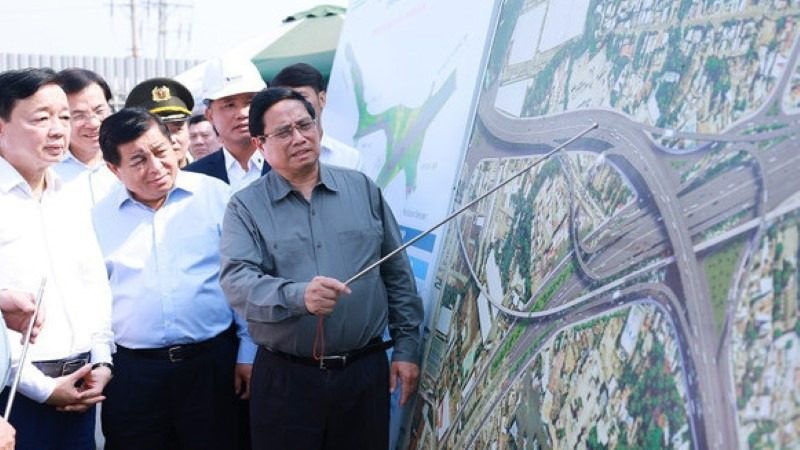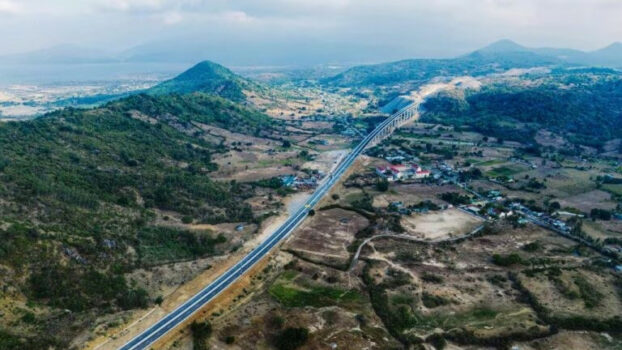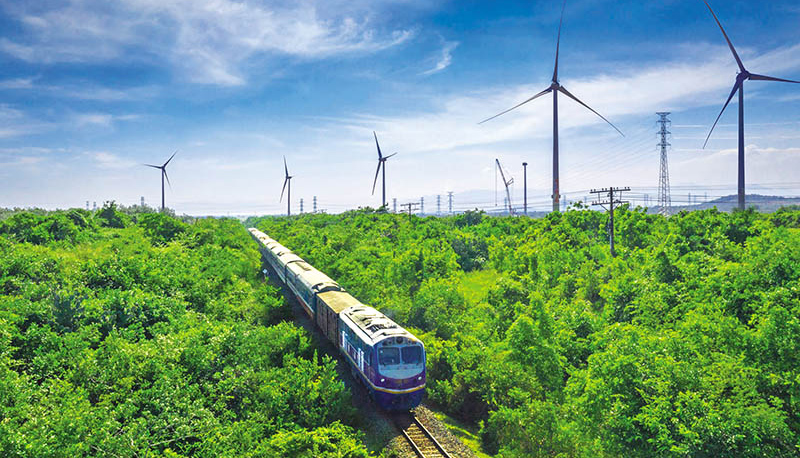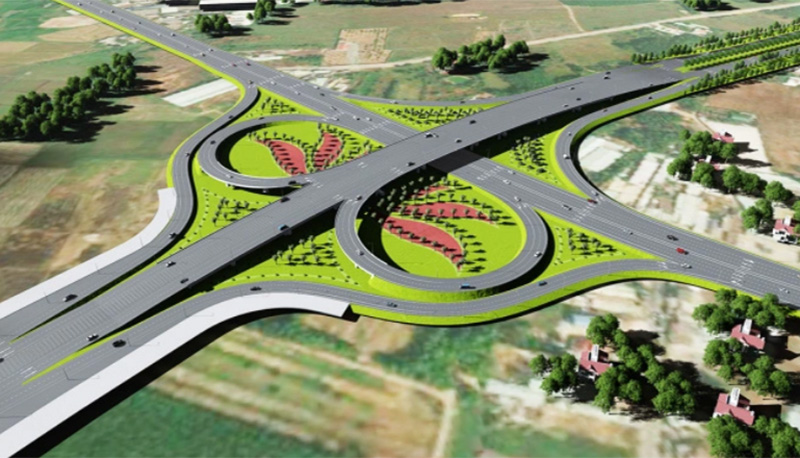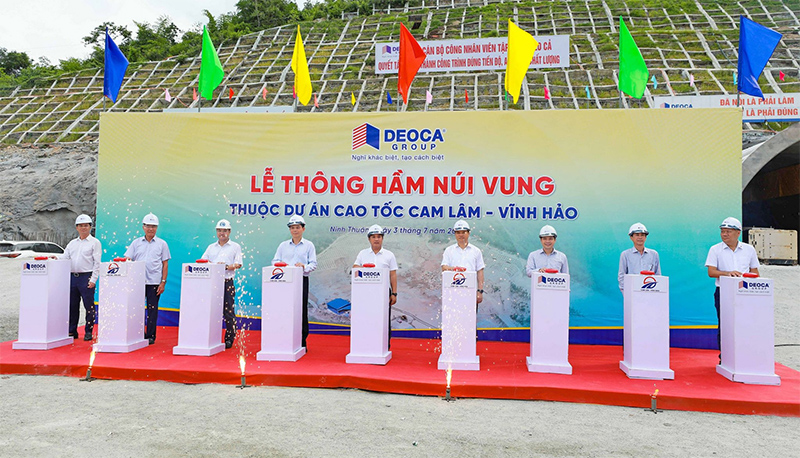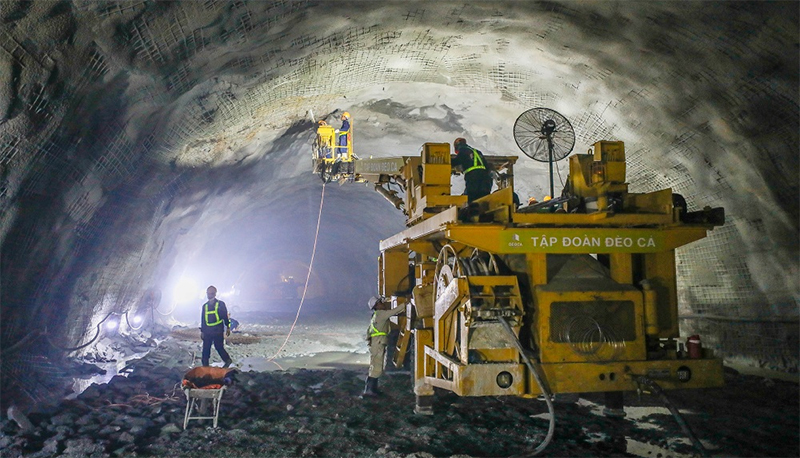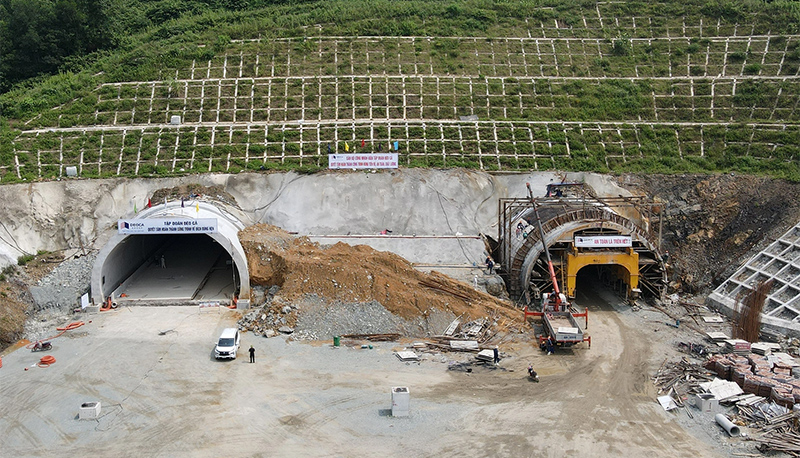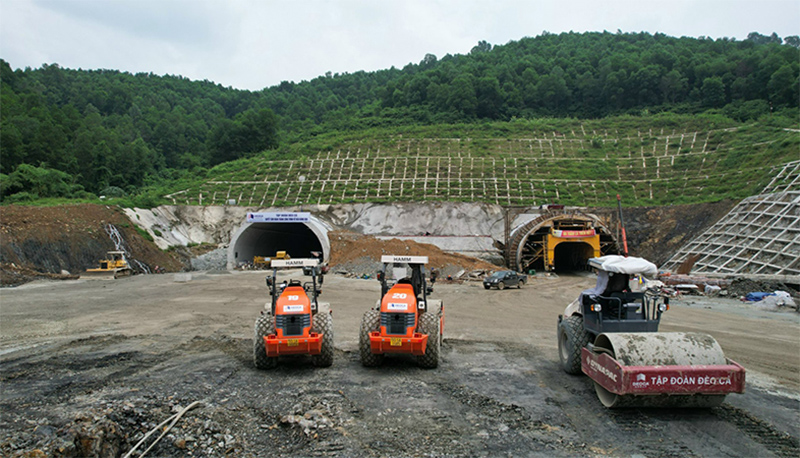Today (November 13th), Nhadautu.vn magazine - The organ of the Vietnam's Association of Foreign Invested Enterprises (VAFIE) held a talk on “Developing Vietnam’s transport infrastructure” and introduces the special issue of the “Investment and development of transport infrastructure”.
The talk on “Developing Vietnam’s transport infrastructure” focused on the following topics:
- Assessing the implementation of Resolution No. 13 of the 4th Conference of the XIth Central Committee of the Communist Party of Vietnam on investment in transport infrastructure. Reintroducing the Resolution, the birth context, the implementation process and achieved results.
- The current situation of Vietnam's transport infrastructure development. Compared to development requirements, what is the situation of the infrastructure.
- How to mobilize investment capital for developing transport infrastructure in the new stage.
- The general situation of attracting private and FDI investment in the field of transport infrastructure.
- Updating the situation of important infrastructure projects such as Van Don airport, Long Thanh airport, North South expressway, etc
- Sharing experiences and lessons of successes and failures of investors in projects that had been implemented in the past time.
Participating in the Talk, the side of the Vietnam's Association of Foreign Invested Enterprises included Prof and PhD. Nguyen Mai - Chairman of the Association; Mr. Nguyen Van Toan - Vice Chairman; PhD. Tran Du - Secretary General of the Association.
The side of agencies of the Party and National Assembly, the Government included Mr. Dinh Van Nha - Vice Chairman of the National Assembly Finance and Budget Committee; Mr. Nguyen Van Phuc - Former Deputy Chairman of the National Assembly's Economic Committee, etc.
On the side of the Ministries, Departments and Agencies, there were Mr. Nguyen Nhat - Deputy Minister of Transport; Mr. Nguyen Danh Huy - Director of PPP (Ministry of Transport); Mr. Pham Tuan Anh - Director of Infrastructure Department (Ministry of Transport); Mr. Nguyen Duc Trung - Director of Infrastructure Department (Ministry of Planning and Investment); Mr. Nguyen Dang Truong - Director of the Department of Public Procurement (MPI);
Mr. Bui Tat Thang - Director of Vietnam Institute for development strategies (MPI); Mr. Dinh Lam Tan - Deputy Director of Vietnam Institute for development strategies; Mr. Phan Duc Hieu - Deputy Director of the Central Institute for Economic Management; Mr. Dang Xuan Quang - Deputy Director of the Foreign Investment Agency; Prof. PhD. Tran Chung - Former Director of the State Authority for Construction Quality Inspection; Mr. Ho Quang Loi - Deputy Chairman of Vietnam Journalists Association, etc
On the side of business leaders, there were Mr. Le Khac Hiep - Deputy Chairman of Vingroup; Mr. Tran Van The - Deputy General Director of DeoCa Group; Mr. Bui Quoc Hiep - General Director of Van Phu - Invest Investment Joint Stock Company; representatives of Sungroup, BRG, Flamingo, Cuong Thuan IDICO Development Investment Corporation, Eurowindow, etc
There are also representatives from banks: VietCapitalBank, Vietinbank, Vietcombank, SHB, etc
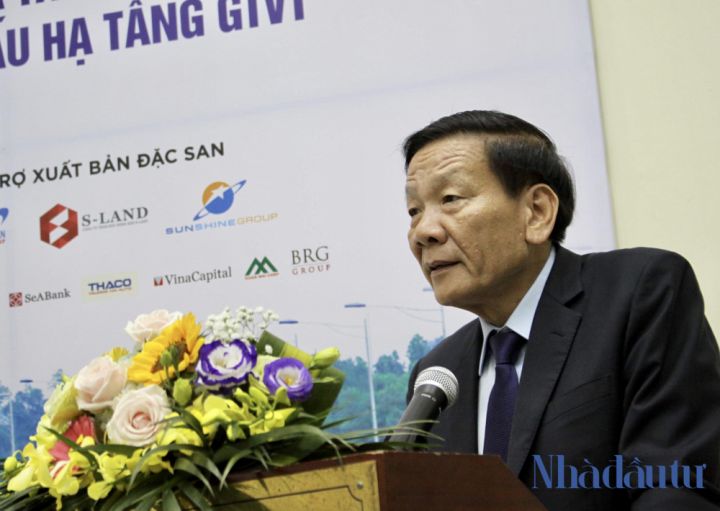
PhD. Nguyen Anh Tuan - The Editor-in-chief of the Investor Magazine delivered the opening speech
Delivering the opening speech of the talk, PhD. Nguyen Anh Tuan - Deputy Chairman of the Vietnam's Association of Foreign Invested Enterprises - The Editor-in-chief of the Investor Magazine on behalf of the Investor Magazine’s Editorial Board sent his thanks and warmly welcomed Deputy Minister of Transport Nguyen Nhat and distinguished guests on behalf of the Ministries, departments, agencies, economic experts, leaders of businesses, press agencies take time to attend the talk on “Developing Vietnam’s transport infrastructure”.
As we all know, developing a synchronous infrastructure system, including transport infrastructure is one of the very important tasks set out in Resolution No. 13 NQ/TW dated January 16, 2012 of the XIth Central Committee of the Communist Party of Vietnam and is one of three strategic breakthroughs to turn our country into a modernity-oriented industrial one.
In order to assess the situation of the implementation of Resolution, point out achievements, limitations, clarify the causes and propose solutions to enhance the attraction and improve the efficiency of investment capital in transport infrastructure for the coming time, with the support of the Ministry of Transport, Ministry of Planning and Investment and the enthusiastic contributions of economic experts, the support of businesses, the Investor Magazine has successfully published the special issue on “The Development of transport infrastructure”. The content of the special issue is very rich with many in-depth analysis articles on many aspects of transport infrastructure investment and development which will be introduced in a short time from now by Deputy Chief-Editor Hoang Anh Minh on behalf of the Magazine’s Editorial Board.
To continue performing the in-depth analysis and clarify some of the topical issues that have been mentioned in the special issue, especially those in dispute as well as in-depth discussions on solutions to raise domestic and foreign capital for transport infrastructure development, today, with the consent of the leaders of the Vietnam's Association of Foreign Invested Enterprises, the Investor Magazine organizes a Talk on “Developing Vietnam’s transport infrastructure” and also introduces the special issue.
The talk will focus on 5 main contents:
- - Making overall assessment of implementing Resolution No. 13 of the 4th Conference of the XIth Central Committee of the Communist Party of Vietnam on transport infrastructure investment and development: implementation process, achieved results, limitations and causes, solutions for the coming time.
- - How to mobilize investment capital for developing transport infrastructure in the new stage, especially for national key projects?
- The situation of attracting foreign investment in the fields of transport infrastructure, why haven’t foreign investors been involved and what is the solution to this? (Investment guarantee, foreign currency conversion guarantee).
- How to improve the quality of transportation projects.
- Sharing experiences and lessons of successes and failures of investors in projects that have been implemented in the past time; recommendations of investors, units and functional agencies of the Government
We believe that with the participation of the leaders of the Ministry of Transport, the Ministry of Planning and Investment and other reputable experts with extensive experience in investment in general and transport infrastructure investment and development in particular as well as of investors, the talk will achieve the goals set by the organization committee.
We also expect the newspapers and television stations of the Central and Hanoi will provide sufficient and objective information about the exchange ideas and proposals at the Talk, thereby providing the authorities, policy makers and investors with useful information to work together to remove obstacles and barriers, increase the attraction and improve the efficiency of domestic and foreign investment capital in the transport infrastructure field.
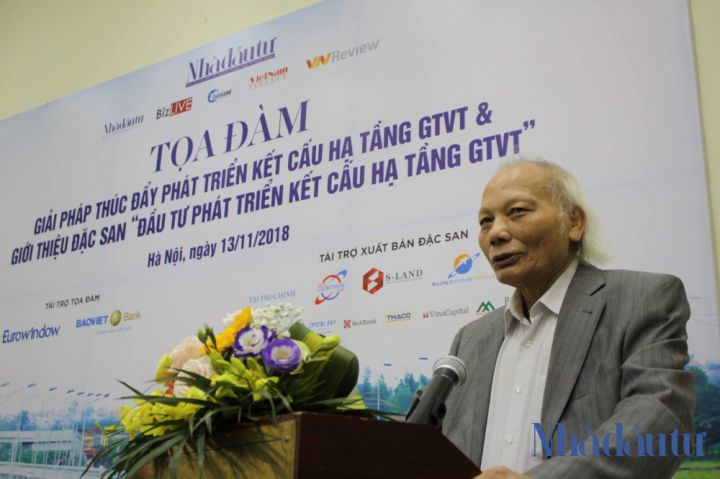
Prof and PhD. Nguyen Mai - Chairman of the Vietnam's Association of Foreign Invested Enterprises delivered a speech at the Talk.
Speaking at the Talk, Prof and PhD. Nguyen Mai stated: Today we do not talk much about achievements but we will discuss solutions. I would like to raise 4 issues:
Firstly, in term of vision. There have been countless policies of the Government and the National Assembly and many periodic plans for many fields and the field road infrastructure construction, perhaps hundreds of thousands of tons of paper spent on these policies, therefore we have generally not had a long-term vision and the conflict in any field of development is very clear.
If Hanoi expands the construction of roads, the conflict will be very big because the increasing demand for vehicles leads to traffic jams. The situation in Ho Chi Minh City is also similar as roads are always being built, Tan Son Nhat airport is also being expanded because of overload while Long Thanh airport is under construction. It can be said that we are always in an urgent state of expansion.
There is still a lack of visions, even though we have always had a vision to 2030. This is the biggest problem because any solution of a nation must first have a vision.
In the field of road traffic, the scope may be narrower than the infrastructure but we have joined ASEAN and must, as a community, have a long-term vision. Look at the measurement results, we are very excited of being better than yesterday but being still too slow compared to the demand and being a lot behind compared to the surrounding countries.
Secondly, in term of capital. North-South railway has been set out since the time of Prime Minister Nguyen Tan Dung, we will go into fast development stage thanks to elevated railways and high-speed roads.
It is absurd that a country cannot always mobilize enough capital. We can mobilize sufficient capital from domestic and foreign sources, investment funds.
For example: from 1929 to 1933 in the context of the severe economic crisis, Germany at that time could only mobilize capital thanks to manual labor and was much backward to us now. But labor discipline made Germany become the most modern at that time.
In the 1960s in Japan, the Japanese began to build a very modern high-speed train system which was the world safest and the punctual to second train.
In 1953, Korea was also terribly devastated and by 1960 began to go up with highways built very fast. Beside us, China builds 1,700 km of highways every year. That means each year China can build a high-speed railway equivalent to the distance from Hanoi to Ho Chi Minh City.
Thus, it can be seen that capital is always an issue and this issue is always solved by countries with policies.
I always ask why foreign investors have not invested in Vietnam’s road infrastructure?
We can completely mobilize capital in the open world now not to mention we have approximately 720 thousand businesses including thousands of large companies and economic groups.
Thirdly, schedule delay. It can be said that the three major characteristics of investments in Vietnam in general or investments in infrastructure in particular are as follows: The first characteristic is excess of initial capital. There hasn’t been any project except Deoca and Cu Mong tunnels, initial capital of which doesn’t exceed by 50%, 100%, 200%, 300%.
Initial capital borrowed from China for 12-km Ha Dong - Ha Noi elevated railway project has been exceeded for 3 times.
The second characteristic is the schedule delay. There are very few projects on schedule, at least 1-2 years behind or even more, which is a formidable waste. Eg: Dead capital in The Ho Chi Minh City Metro, Nhon Metro.
In my opinion, there should be total and vision based solutions instead of local solutions.
We can never solve the road traffic problem as well as the infrastructure problem without a long-term socio-economic development vision.
That vision is not only expressed in books, the strategy but must be also expressed in each stage. This is a story to be done, to be discussed.
A system is needed to ensure that independent consultants, independent supervisors and independent review agencies are involved. Why some communes now build very good rural roads because people there participate, monitor and implement.
Fourthly, fundamental operational changes. To make the investment capital brings the highest growth, it’s required to have a system from visions to concrete solutions. By this way, we can solve the problem, agree on how to choose practical problems.
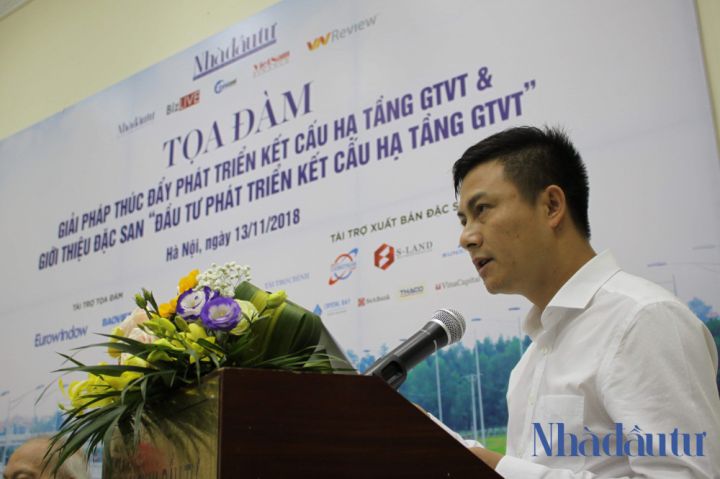
Journalist Hoang Anh Minh - Deputy Editor-in-chief of the Investor Magazine delivered a speech at the Talk.
Speaking at the Talk, Journalist Hoang Anh Minh - Deputy Editor-in-chief of the Investor Magazine said that developing synchronous infrastructure, including transport infrastructure was one of the three strategic breakthroughs proposed at the XIth National Party Congress. In recent years, implementing Resolution No. 13 of the XIth Party Central Committee on “Constructing synchronous infrastructure to turn our country into a modernity-oriented industrial one by 2020” along with the fulfillment of institutions, policies, a number of important and large-scale traffic works have been invested, upgraded and facilitated to connect the regions of the country and international traffic systems.
However, compared with the set goals and the development needs of the economy, the achieved results are still limited. The policy of socialization and mobilization of private capital to invest in developing transport infrastructure in the form of PPP has not brought about the expected results, especially the mobilization of foreign investment capital. Facing this situation, it is necessary to find out the cause and have more realistic, feasible and creative solutions to remove barriers in order to achieve the set goals of constructing road transport infrastructure in the new context and situation.
According to the Ministry of Transport, the demand for infrastructure investment capital always exceeds the budget's ability to meet 2016-2020 medium-term investment plan and will continue to do so in the industrialization process of the country. Therefore, mobilizing all off-budget resources is an inevitable and objective trend and an effective solution to meet investment capital demand for developing transport infrastructure and improving service quality in the transport traffic field.
However, the process of implementing Resolution 13 also shows that there are, in the legal framework, still many issues that need to be resolved in order to promote this form of investment. For example, the policy mechanism for this investment model is incomplete with many obstacles in the implementation process; investors haven’t really felt secure when investing capital in this field, especially foreign investors because investment guarantee measures are not guaranteed; there have been new issues related to the PPP model, including complaints and objections of people to BOT projects, etc
All of these issues raise the need for state management agencies to further complete policy mechanisms to quickly promote capital flows into transport infrastructure in the most effective way in the coming time, contributing to promoting the socio-economic growth in general.
For the special issue of “Investment in developing transport infrastructure” published by the Investor Magazine to summarize the expert's assessments on the state of transport infrastructure, barriers in mobilizing domestic and foreign resources to invest in the development of this important field as well as recommendations, proposed mechanisms and policies and solutions for the coming years, the content of the Special issue focuses on the following main topics:
- Firstly, look back on achievements of the investment in developing transport infrastructure in the past time, especially in the 5 years of implementing Resolution 13.
- Secondly, analyze what has been done and not yet done, identify the limitations in attracting investment in the transport infrastructure field in recent years.
- Thirdly, propose solutions to promote investment capital flows into this field in the near future.
On the investors' side, the special issue focuses on analyzing, introducing and reflecting projects that have been invested under the PPP model and highlights difficulties and advantages of investors for the State management agencies to study and propose appropriate solutions.
The Editorial Board of the Investor Magazine hopes that the Special issue will be a meaningful reference for both policy makers and central and local state management, research agencies as well as for investors who are interested in transport infrastructure projects.
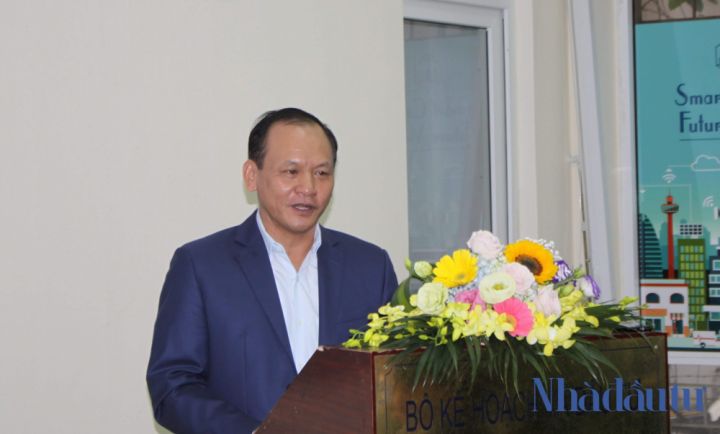
Deputy Minister of Transport Nguyen Nhat delivered a speech at the Talk
Deputy Minister of Transport Nguyen Nhat: “There are many restrictions that cause the slow development of the transport industry”
After 6 years of implementation, the Government and the National Assembly have been very interested in investment in the transport field, although the state budget is still inadequate.
There are two issues of concern, one is to build the legal system and the other is to build infrastructure.
Currently among 5 areas of transport, road meets 70-72% and the remaining 4 areas just meet 30%. In term of investment structure, investment capital is 90% for roads and 10% for other areas. We need time to adjust but can’t do in just one or two days.
For the general transport areas, our plan for 2020 is to transport 500 - 700 million tons/year. reach 300,000 tons. It can be said that waterway is one of the development areas such as Fomosa specialized port reaching 300,000 tons. We have nearly 44,000 km of exploitable seaway. Transport costs are only one third of other areas, but we have not exploited at maximum.
But there are also many inadequacies and limitations that make the waterway transport difficult to develop. Planning of bridges across the river limits waterway traffic. There are approximately 168 bridges preventing inland waterways such as: Duong bridge, Xi Mang Bridge in Hai Phong, etc.
In the South-western region, there are two rivers of Tien and Hau flowing from East to the West of Cambodia. The depth of 40m is the ideal depth for shipping.
Railways often intersect roads, causing traffic accidents to increase while their transport capacity accounts for only 1.7%.
There are many restrictions that cause the slow development of the transport industry such as: annual budget approved for the transport sector is only about 23% of the plan. In 2016-2020 stage, the Ministry of Transport isn’t entitled to implement any new projects except for paying for basic construction and completed projects.
Currently the Ministry of Transport is deploying VND 55,000 billion North-South expressway with VND 51,000 billion mobilized from investors and banks. 3 budget capital project and 8 BOT project (state capital and enterprise capital). The Government supports 38-40% including land clearance cost so that investors feel less risky.
The Ministry is striving to start all 8 BOT investment projects in the third quarter of 2019. In the second quarter of 2019, 3 state budget projects will be commenced.
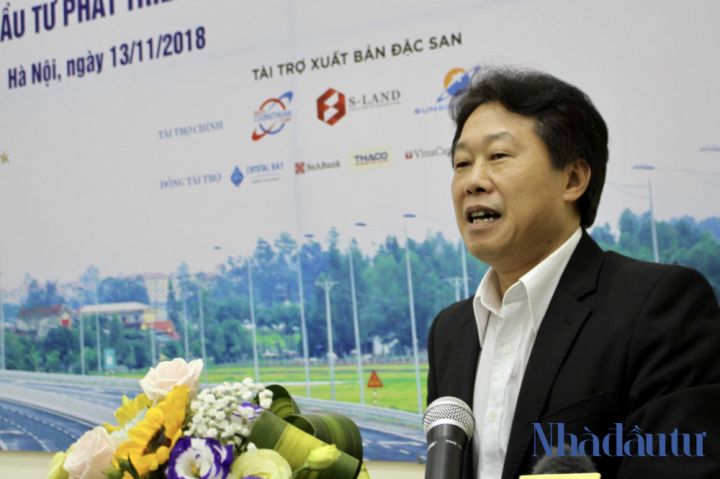
Mr. Dinh Van Nha - Vice Chairman of the National Assembly Finance and Budget Committee delivered a speech at the Talk
Mr. Dinh Van Nha - Vice Chairman of the National Assembly Finance and Budget Committee: “In the last 10-20 years, BOT investors have been like ephemeras”
The budget for infrastructure investment, especially the budget for arrangement and maintenance can be doubled to ensure the quality and may be even increased by 4-5 times in the next 10 years.
I assess that the maintenance fee until 2019 should be more than VND 12,000 billion but is currently just 40%. I highly appreciate the role of private investors who have contributed greatly”.
I expect the Government and National Assembly to create a legal environment which is better and not like the past 10 years for infrastructure PPP, BOT investors in the future and so that they do not have to invest and take all possible risks like "ephemera" in the last 10-20 years.
I assess the 3 risks to investors:
Firstly, risks of planning adjustments. I consider this a test policy to implement BOT projects. Accordingly, the road network planning is the national plan, the infrastructure planning is a sub-planning for synchronous network planning, we have a strategy but it is not good.
For example, if the North South expressway is concentrated to be finished, who will travel by National highway No.1 when the new way is put into use and renovated once every 3-4 years. In order for the BOT projects to be invested by the private sector, especially infrastructure, the plannings must be public so they can measure the risks. Due to unclear plannings, foreign investors do not dare to invest in them. Plannings which do not come to life will create big risks.
Secondly, multi-level service cost. According to social awareness, it’s a road fee. I greatly sympathize when the Ministry of Transport has moved from the toll station to the price station. Society needs to accept higher tolls when road prices are higher. It will be a permanent risk when building toll stations put pressure on people and the society. Investment attaches great importance to return on capital but people do not accept higher service prices. Who will dare to invest? While the payment of loan interest is very difficult.
Thirdly, if a long-term economic development strategic planning does not come to life or fails due to objective reasons, the projects before it such as infrastructure (roads, airports, etc) will be at risk and affected, thereby the revenue is reduced.
I realize that the Government needs to be transparent about many issues from the determination of the price of infrastructure services, which is still difficult but is the foundation to solve the issues. In addition, the State also needs to calculate and amend economic and technical norms to serve construction, including infrastructure investment. We still apply the calculation method from the end of 1990. We are in a market economy but the basis of determining reasonable costs is more at the level of centralized planning mechanism than being attached to the market.
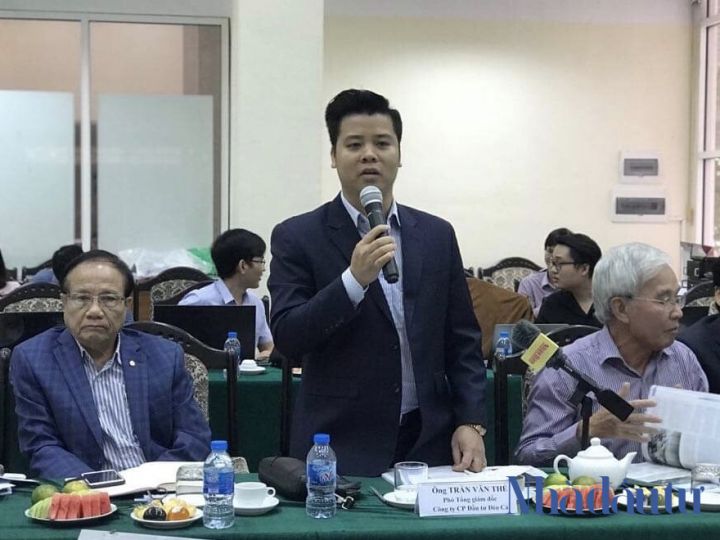
Mr. Tran Van The - Deputy General Director of Deoca Investment Joint Stock Company
Mr. Tran Van The - Deputy General Director of Deoca Investment Joint Stock Company: “Inconsistent legal documents cause difficulties for investors”
Firstly, the legal framework and legal documents of Vietnam are not consistent, for example: Law on Investment and Law on Enterprises are not reasonable. According to Law on Enterprises, enterprises can transfer stock or contribute capital, but they can’t according to Law on Investment.
Moreover, the legal stability is not high, the Decrees and Circulars are constantly changing, so we are concerned that the interests of investors and the industry's interests are affected.
Therefore, when a policy is changed, the State must ensure our rights in signing BOT contracts.
Secondly, capital mobilization: Currently, Vietnam's banking scale is too much, so the planning of credit institutions sufficient for infrastructure capital needs to be reviewed. In addition, the legal documents and policies encourage lending, but banks warn of risks in lending in infrastructure activities.
On the side of people using infrastructure services, people still have a habit of free consumption, especially the use of infrastructure services.
I think that the propaganda hasn’t been good, people haven’t fully understood investors and the State policies, leading to overreaction.
Moreover, the inconsistency of laws such as law on road tolls with law on prices and decrees leads to the issuance of road tolls not in compliance with law on prices.
Thirdly, due to the reaction of the people, we have to receive many inspection and audit teams. However, the inspection and supervision agencies have just focused on auditing party B, and the sanctions haven’t been taken by the inspection agencies to ensure interests for investors.
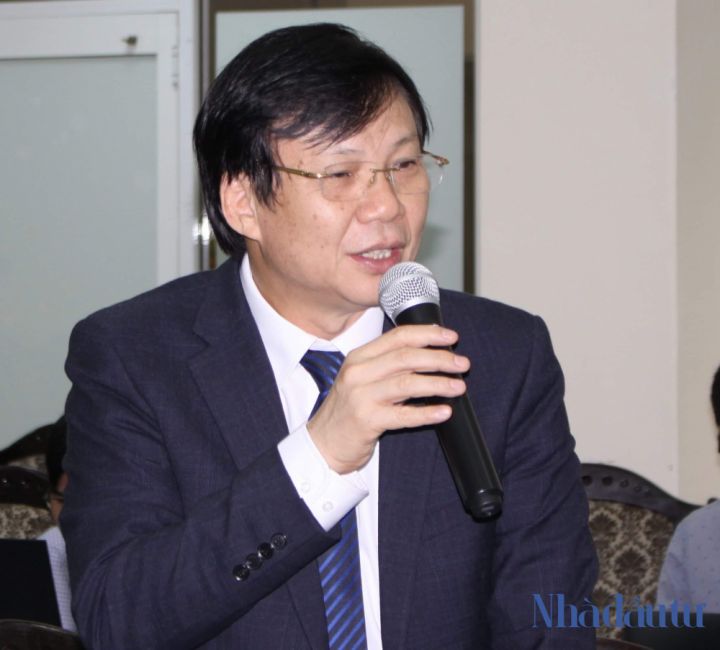
Mr. Ho Quang Loi - Standing Vice Chairman of Vietnam Journalists Association
Mr. Ho Quang Loi - Standing Vice Chairman of Vietnam Journalists Association: “Urgently complete the legal policies”
Looking at the development of our country's transport infrastructure from policies to operation, I think that:
Firstly, we must urgently complete legal policies to build a legal corridor increasingly suitable to the current infrastructure.
Secondly, avoid widespread investment capital allocation because the investment efficiency won’t be high.
Third, the procurement process must be strictly controlled because people take countermeasures to distort our policies or gain group interests. Do not use the procurement process to legitimize group interests.
Fourth, from the story of DeoCa we must choose a good construction plan and choose the most advanced technology and pay attention to environmental protection. Instead of backward investment, we must choose the right and most effective construction plan. Currently, DeoCa is preparing the plan to implement Lang Son - Cao Bang expressway with 7 tunnels and the tunneling plan is very correct.
Fifth, construction quality has been a painful issue in Vietnam for many years. I recommend that the construction process must be closely monitored and each step of the process must be attached to audit, acceptance to avoid losses.
Sixthly, from the pain of the BOT station recently, I think we need to organize the operation of the transport system to ensure the interests of investors and people, especially the interests of investors and tunnel tolls must be different from tolls applicable to normal roads.
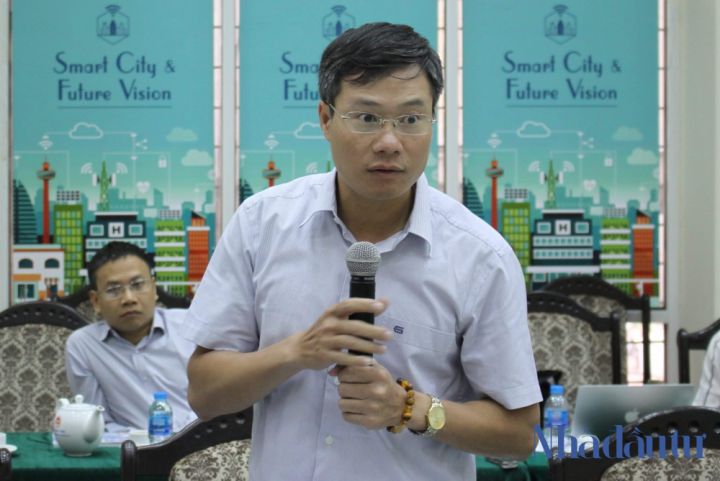
Mr. Nguyen Dang Truong - Director of the Department of Public Procurement (MPI)
Mr. Nguyen Dang Truong - Director of the Department of Public Procurement (MPI): "There are more advanced regulations in the PPP field"
In the past, we required the PPP process to be done in the form of public investment. However, this field is of completely different nature and this bottleneck was removed only until the recent approval of Decree 63. However, there are many obstacles in the public-private partnership.
Concerning financial arrangements, there is currently thinking of limiting credit for infrastructure projects. However, short-term and medium-term loans should be limited. We need to create a true financial market for PPP.
Vietnam should learn Korea in this regard. All of their public and private projects are methodically researched, followed by independent research and concentrated appraisal. Projects are classified into effective ones to be done by PPP and “bony” ones to be done by the state.
Their legal corridor is also very clear and protects investors, and their Law on public-private partnership states that if there is a conflict with other laws, law on PPP is preferred. 20 years ago, Korean public investment wasn’t different from Vietnam now, but Korea is now one of the countries with the best infrastructure in Asia.
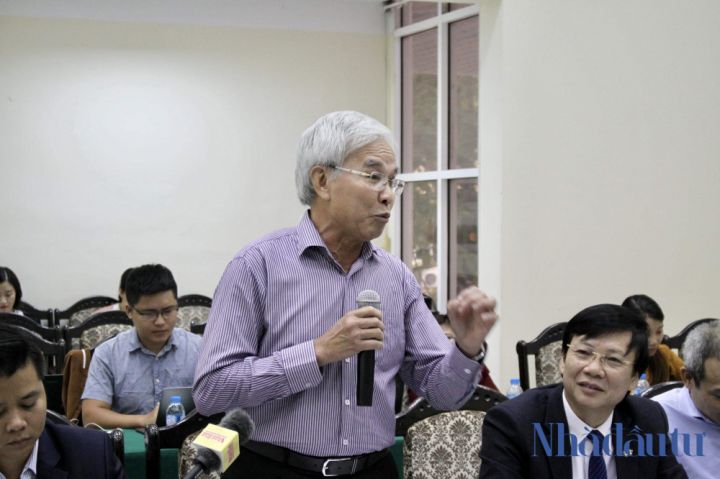
Prof. PhD. Tran Chung - Former Director of the State Authority for Construction Quality Inspection
Prof. PhD. Tran Chung - Former Director of the State Authority for Construction Quality Inspection: “Investment is so widespread that it is slow and inefficient”
Regarding Da Nang - Quang Ngai expressway worth more than VND 34,000 billion which has been opened to traffic but has broken, many press agencies asked me to whom the fault belonged, on whom discipline was imposed.
I think that the cause of any technical mistake must be found. After defining the cause and then who is responsible for the cause, we need to treat the cause not symptom.
Today, at this talk together with discussions on solutions to promote the development of infrastructure in Vietnam, I would like to raise some aspects: Investment is so widespread that it is slow and inefficient.
Secondly, contractors in the market mechanism, in the market economy are hired through contracts and then the contractors must ensure quality according to the design documents in the contracts as contractors in the market mechanism.
In addition, an investor may be capable or if he/she is incapable and in case of large volume, he/she must hire a unit to help him/her to monitor whether the contractor constructs as designed and ensures expected quality.
Thirdly, regarding the capacity of a contractor, the management process must clearly define who is responsible. Law on Construction clearly stipulates that risks can arise in the construction phase, so Law provides strict regulations on quality management during the construction phase of projects.
In the construction quality management mechanism, there are 2 most important subjects. The first subject is construction contractors who must have organizational measures, supervision methods to check and assess the quality of deliverables. The two key characters in the construction quality management phase are construction contractors and supervisors. And the acceptance records, especially the quality acceptance are only signed by the representative of the contractors and the supervision consultants. If there are defects or quality errors in the construction phase, the main responsibilities belong to the contractors and then to the supervision consultants.
For the State Acceptance Council in this project, the press has also published many articles like this while the institutions on the State Acceptance Council’s responsibility have been established by the Prime Minister since 1976 for state owned capital projects, especially those that are the first to introduce complex technical advances in Vietnam, big projects, public works such as stadiums, theaters resulting in major loss of life in case of incidents or structures likely to cause environmental disasters in case of incidents such as large dams or bridges, especially complex bridges.
The Prime Minister establishes a State Acceptance Council to help the Prime Minister check whether an investor properly follows the quality management process and then consider and assess the quality for submitting to the Prime Minister for approval.
Therefore, the responsibility for quality during the construction phase focuses belongs to the construction contractors and the supervision consultants and the supervision consultants is of course hired by the investors or of the investors. If hiring unqualified consultants, the investors must be responsible.
In short, the investors are behind the supervision consultants and the contractors because the investors are those who hire, choose and control their work.
In terms of auction, as I have seen that in Vietnam price is a decisive factor because bid price is the most specific quantitative parameter, while capacity is only a secondary factor, therefore we we have been engrossed in bidding in the way of auction, which means that the bidder with the lowest price wins and this is an incorrect way.
For example: I choose a technician who can make products meeting 9 or 10 points out of 10, but his/her price is high, while a technician who only can make products meeting 6 points, his/her price will be of course lower. As a result, choosing a bidder with the low price bid will result in low quality, which happens mainly to public investment projects. Public investment projects are also controlled by many other institutions.
When I choose a higher bid price, other units will come to inspect, check why a lower bid price is not chosen, etc. In my opinion, these things must be drastically reformed. So that's why private investors don't choose the way like that.
I expect that mechanisms and policies to remove difficulties for investors to be promulgated so that the investors can feel secure to invest in projects.
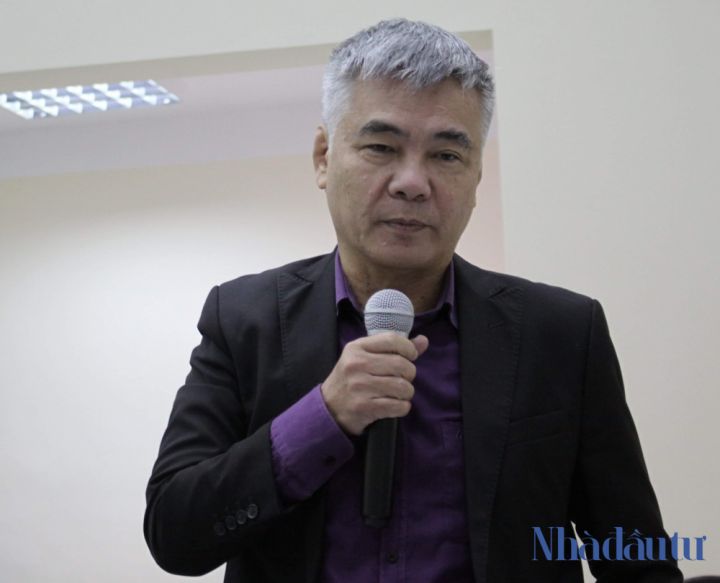
Mr. Nguyen Van Phuc - Former Deputy Chairman of the National Assembly's Economic Committee
Mr. Nguyen Van Phuc - Former Deputy Chairman of the National Assembly's Economic Committee: “Legislation is still inconsistent among the ministries, agencies”
In order to evaluate the investment and development of transport industry, Mr. Tran Duy Lich delivered a speech about the transport industry and quoted the Japanese Transport Minister’s saying that what should be done first if having money? It’s traffic and it's still traffic if having more money. This shows that in the world, transport is the most important to develop the economy.
I realize that for economic development, it is necessary to develop transport infrastructure first because it not only develops economy but also benefits the people. For the transport industry, the legal framework and policies mean a lot, but trust is first of all as people do not believe and do not invest without the legal framework. Even experts do not believe in laws, so the quality of the laws is very important and determines traffic quality.
Second, in terms of planning, we have different areas of investment but what are their priorities? Why not focus on maritime transport? We have surveyed and found that the Southwestern region had no roads and the roads here were less important than waterways. Therefore, planning is an important priority.
For example, in regard to the National Assembly's approval of high-speed railưay investment, however, the feasibility of capital, the interests of the transport departments and agencies and the the investment in high-speed railways also narrows capital for other items.
Thirdly, we still rely on bank capital which is short-term capital not long-term one. The problem is that we do not have investment funds but mainly rely on bank loans.
The fourth problem is the quality of operation management and maintenance. The transport industry has made an effort but the quality hasn’t been met. Moreover, we often underestimate media and building trust. Journalism also plays very important role in transport. If there are no press agencies, mistakes can’t be detected.
In addition, the responsible agencies have to review the regulations that must be in line with international standards. At present, promulgated laws are national laws but legislation is still inconsistent among the ministries, agencies.
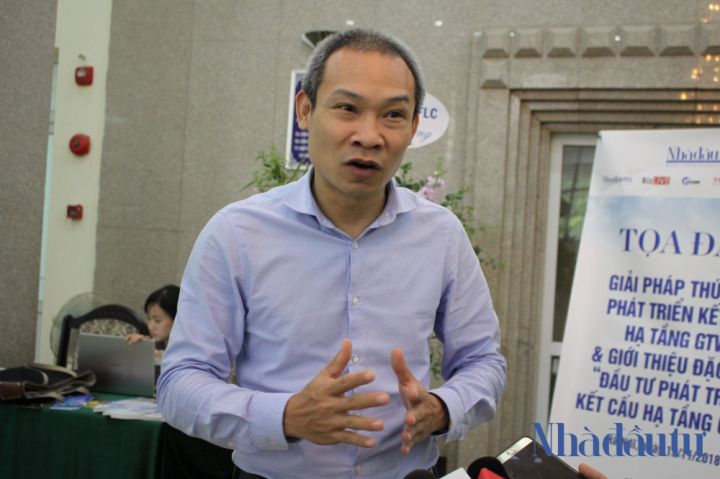
Mr. Phan Duc Hieu - Deputy Director of the Central Institute for Economic Management
Mr. Phan Duc Hieu - Deputy Director of the Central Institute for Economic Management: “TPP investment environment is very risky”
At present, the PPP investment environment is very risky, which is one of the factors I find it very concerned for investors.
At the talk today, I would like suggest that we should not be struggling with the things of BOT, BO, etc
Regarding solutions to promote the development of transport infrastructure, I think it is imperative to give priority to enacting Law on PPP and research new PPP models such as BTL (Build-Transfer-Lease) model and the State should apply a risk sharing mechanism to investors.
Eg: an investor builds a road but can’t collect sufficient tolls from users. In this case, the State should have a mechanism to share risks with the investor.
According to the reporters



